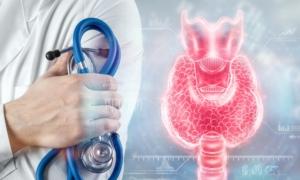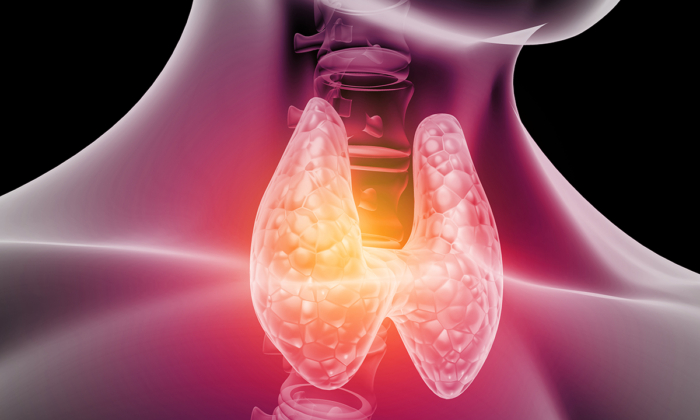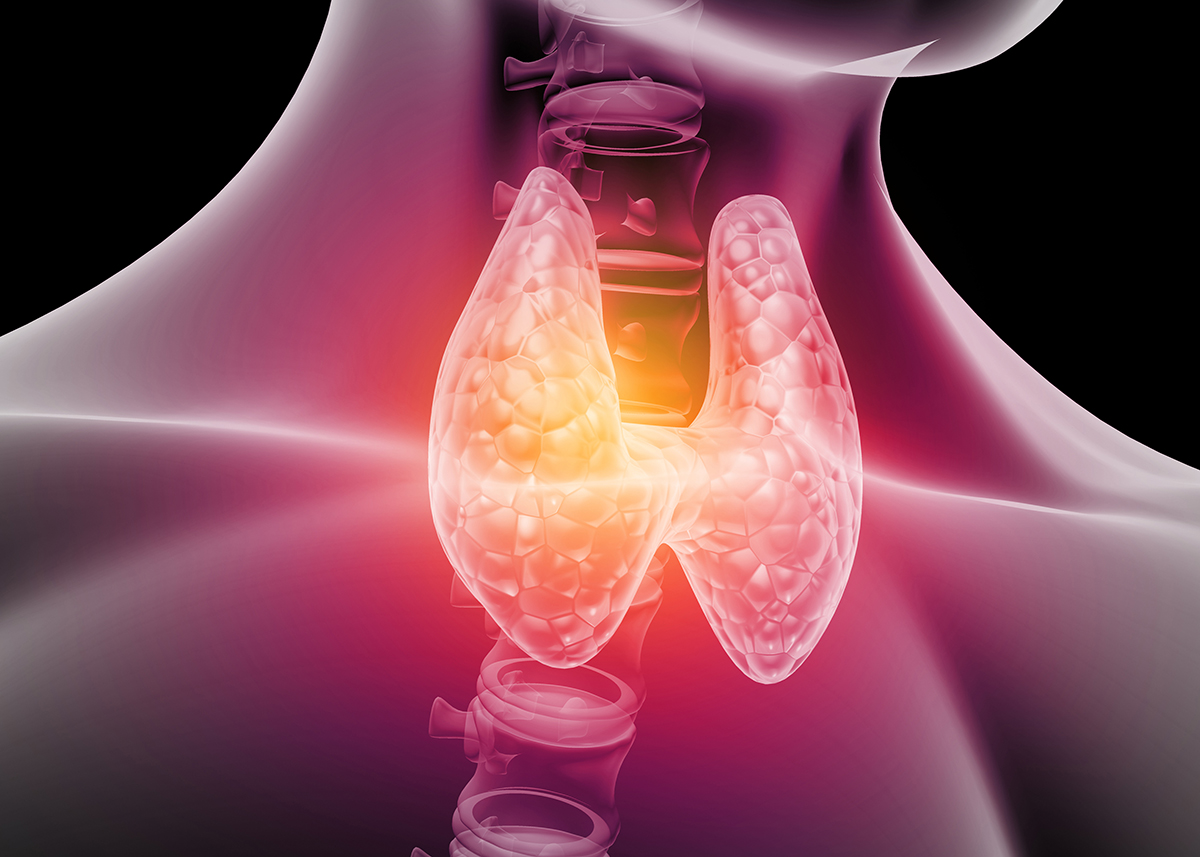Thyroid Diseases Linked to COVID-19 Vaccination: Studies
Thyroid disorders, especially hypothyroidism, may be linked to COVID-19 vaccinations as possible adverse reactions, reports a recent Indian study.
Thyroid disorders, especially hypothyroidism, may be linked to COVID-19 vaccinations as possible adverse reactions, reports a recent Indian study.
The study authors from Banaras Hindu University identified 75 cases of thyroid disturbance after COVID-19 vaccinations. Patients who took vaccinations after recovery from COVID-19 had an added risk of post-vaccine adverse reactions and the persistence of such reactions.
Internist and functional medicine practitioner Dr. Yusuf Saleeby of Carolina Holistic Medicine said that he would expect similar reactions from both vector-based and mRNA-based COVID-19 vaccines since both induce the body to produce the virus’ spike proteins.
“I see hypothyroidism 90 percent of the time” for patients with thyroid problems post-vaccination, Dr. Saleeby said. Some people first present with signs of hyperthyroidism and later develop hypothyroidism.
Dr. Saleeby reasoned that spike protein could disturb the normal feedback loop mechanism between the thyroid and other endocrine organs, disrupting hormonal production.
Hypothyroidism vs. Hyperthyroidism
Hypothyroidism refers to when the thyroid is not making enough hormones.
It usually occurs as part of an autoimmune disease, where the body attacks its own thyroid.
Both conditions share various symptoms, including enlarged thyroid, fatigue, hair loss, and sexual dysfunctions.
New-Onset Hypothyroidism
Study participants were followed from 2022 to 2023. Over half had a preexisting thyroid dysfunction, most of which were hypothyroidism.
“Flares were common … after the 2nd dose of COVID-19 vaccine,” the authors wrote, adding that they tended to appear at around five, 28, and 13 weeks after the first, second, and booster dose, respectively.
Patients who took the vaccine after recovering from a COVID-19 infection were likelier to report persistent health problems.
New-onset hypothyroidism was particularly prominent, accounting for about one-third of the cases, mostly among females. Over 77 percent of the cases occurred after the second dose, and the median onset time was the fourth month.
Commonly reported symptoms of hypothyroidism included body swelling, menstrual abnormalities, weight gain, and fatigue.
A few cases of hyperthyroidism were also reported.
Thyroid Disturbances and COVID mRNA Vaccines
Studies so far have not provided a precise estimate of the rate of thyroid disturbance post-COVID-19 vaccination, and not all thyroid disturbance reports are conclusively linked to the COVID-19 vaccines.
Yet some studies have been published investigating the effects of COVID-19 mRNA vaccines on the thyroid.
The most common links reported have been subacute thyroiditis, meaning thyroid inflammation, and Graves’ disease, an autoimmune disease that can lead to hyperthyroidism.
The patient arrived at the emergency room a week after receiving his second mRNA COVID vaccine. The study authors suspected post-vaccine myocarditis, but the patient showed no signs of it.
Two weeks later, he presented with weight loss, palpitations, and hand tremors. After being tested for thyroid hormones, he was diagnosed with Graves’ disease.
A year later, the patient’s thyroid hormones had not returned to normal, and he remained on medication.
After the third dose, there was a statistically significant increase in TgAb, an antibody formed against a thyroid protein. This protein is associated with Graves’ disease.
“Increase in TgAb was associated with history of … thyroid diseases,” the study authors wrote.
Other hypothyroid diseases following COVID vaccination have also been reported in several case studies.
Conflicting Evidence
Other studies have concluded that COVID-19 vaccinations are not associated with hyperthyroidism and Graves’ disease.
Yet it should be noted that health practitioners tend to find an increased risk of adverse reactions with repeated doses.
“I do see more thyroid disruption the more a patient either gets sick with COVID-19 infections and/or the more they get vaccinated,” Dr. Saleeby said. “Cannot quantify which is worse. But the number of ‘infections’ or ‘injections’ they get, the worse off they are.”
This article has been archived for your research. The original version from Epoch Times can be found here.






